- Arlington County Public Schools
- Catholic Diocese of Arlington
- The Chapin School
- District of Columbia Public Schools
The Master of Arts in Higher Education and Student Affairs (HESA):
-
empowers you to address real-world challenges and implement systemic change through cohort-based, immersive, practitioner-focused experience
- challenges you to think critically about the role of higher education in society and to advocate for transformative change
- gives you tools to ensure all students can access, thrive, and succeed, specifically underserved populations
- offers meaningful assistantships, internships, and practicum opportunities with AU departments, national associations and policy organizations, and community stakeholders
- prepares you to lead through the sociopolitical complexities of higher education
- emphasizes the integration of theory, scholarly research, and practical application in higher education policy and student affairs
- has faculty with significant leadership experience in higher education who are leading scholars in the field
- prepares you to work in dynamic practitioner environments through case-studies, internships, and assistantships
- offers graduate assistantships in areas such as undergraduate education and advising, student involvement and organizations, leadership and community engagement, and the Dean of Students office (a few select positions offer full tuition remission)
- aligns with national standards and competencies (CAS, NASPA/ACPA)
 Estimated Time to Completion
Estimated Time to Completion
1 year full-time, or 2 years part-time
 On Campus or Online
On Campus or Online
Join us on our Northwest DC campus or learn online through live synchronous classes
 Required Credits
Required Credits
33 credits
 No GRE Test
No GRE Test
Required for admittance
 Affordability options
Affordability options
Graduate assistantships and partnership scholarships are available
 Cohort-based learning
Cohort-based learning
Progress through your courses as a group

Our pPestigious Faculty
Meet Dr. Corbin M. Campbell
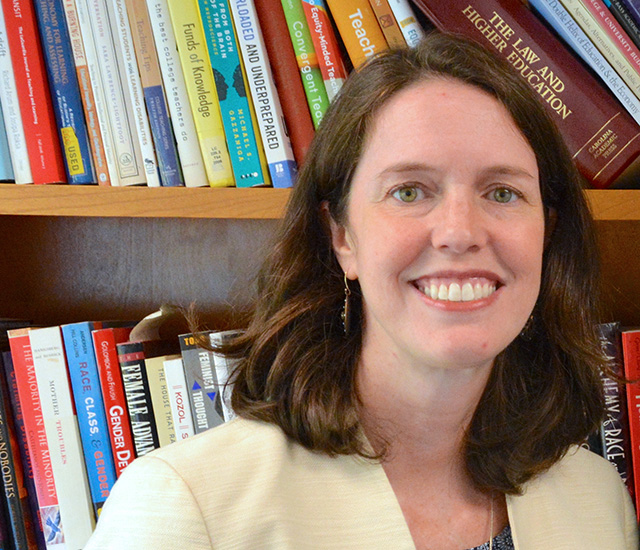 Dr. Campbell brings leadership experience to the HESA program from her work in academic affairs (Sr. Associate Dean of AU’s School of Education), student affairs (Assistant Director of Housing Programs at George Washington Univ.), and as a 2020 Program Chair for the Association for the Study of Higher Education. She has secured funding from the Gates Foundation, been appointed to a committee of the National Academies and the US Department of Education, was an Associate Editor and/or member of the editorial board for several leading higher education journals, such as the Review of Higher Education and the Journal of College Student Development. She is a nationally known expert on college teaching with more than 50 publications and a 2023 book published by Harvard Education Press, Great College Teaching: Where It Happens and How to Foster It Everywhere, and has been quoted by numerous public media outlets including NPR, the New York Times, the Wall Street Journal, and Inside Higher Education.
Dr. Campbell brings leadership experience to the HESA program from her work in academic affairs (Sr. Associate Dean of AU’s School of Education), student affairs (Assistant Director of Housing Programs at George Washington Univ.), and as a 2020 Program Chair for the Association for the Study of Higher Education. She has secured funding from the Gates Foundation, been appointed to a committee of the National Academies and the US Department of Education, was an Associate Editor and/or member of the editorial board for several leading higher education journals, such as the Review of Higher Education and the Journal of College Student Development. She is a nationally known expert on college teaching with more than 50 publications and a 2023 book published by Harvard Education Press, Great College Teaching: Where It Happens and How to Foster It Everywhere, and has been quoted by numerous public media outlets including NPR, the New York Times, the Wall Street Journal, and Inside Higher Education.
Meet Dr. Brian McGowan
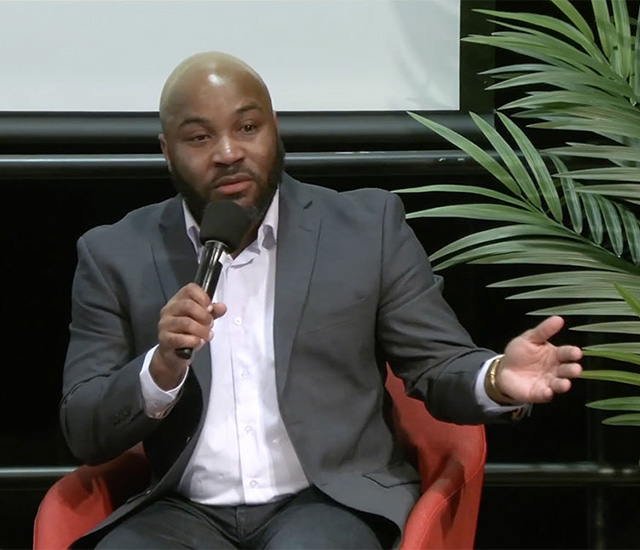 Dr. McGowan is a nationally recognized scholar, speaker, and consultant on college student success and equity-minded policies in higher education. With over 20 years of experience as an academic administrator, tenured professor, and student affairs practitioner, he has authored more than 40 publications and secured over $2.4 million in external funding from organizations such as the National Science Foundation and the Bill and Melinda Gates Foundation. He is best known for his research on Black men’s experiences in higher education, with attention to interpersonal relationships, identity development, and campus climate. Brian began his career in residence life, serving for four years as a hall director and area coordinator. He served as the 2021 Program Chair for Division J (Postsecondary Education) of the American Educational Research Association and sits on editorial boards for leading journals. His work is grounded in mentorship, equity, and student empowerment.
Dr. McGowan is a nationally recognized scholar, speaker, and consultant on college student success and equity-minded policies in higher education. With over 20 years of experience as an academic administrator, tenured professor, and student affairs practitioner, he has authored more than 40 publications and secured over $2.4 million in external funding from organizations such as the National Science Foundation and the Bill and Melinda Gates Foundation. He is best known for his research on Black men’s experiences in higher education, with attention to interpersonal relationships, identity development, and campus climate. Brian began his career in residence life, serving for four years as a hall director and area coordinator. He served as the 2021 Program Chair for Division J (Postsecondary Education) of the American Educational Research Association and sits on editorial boards for leading journals. His work is grounded in mentorship, equity, and student empowerment.

The Master of Arts in Teaching Cohort Experience
Peer learning and a sustained learning network are essential hallmarks of the MAT program. As a result, students will progress through the program as part of a cohort, taking the same courses and accomplishing program milestones together. We intentionally build a diverse cohort of students to contribute to the dynamic learning environment in the program. Learning will occur through robust dialogue, shared learning experiences, and presenting current professional work and shared learning experiences.
L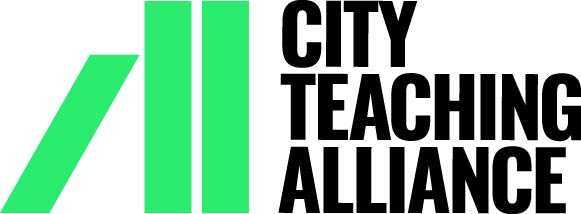 earn more about our City Teaching Alliance Partnership for Teacher Preparation here.
earn more about our City Teaching Alliance Partnership for Teacher Preparation here.
Master of Arts in Teaching Career Opportunities
- Eagle Academy Public Charter School
- Friendship Public Charter Schools
- KIPP Metro Atlanta School & KIPP DC
- The Lab School of Washington
- McLean School
- Montgomery County Public Schools
- Two Rivers Public Charter School
- The Woods Academy
Curriculum
Academic Support Team
Receive comprehensive guidance and support from the time of application through graduation.
The Cohort Experience
Progress through the program as part of a cohort to build a sustained learning environment through peer learning.
Clinical Experience
Gain 600 hours of invaluable hands-on experience, guided by an experienced educator, in a local classroom.
Graduate Placement
100% placement rate in the
workforce within 6 months of graduation
Concentrations within the Master of Arts in Teaching

Early Childhood Education
33 Credits | In Person
This concentration prepares you for a rewarding career in educating and supporting young children from Pre-K through grade 3. This graduate degree focuses on providing you with the advanced skills and knowledge needed to effectively teach and nurture children during their crucial developmental years. Graduates go on to teach; direct early childhood centers; public, private, or charter schools; become early intervention specialists; and more.

Elementary Education
33 Credits | In Person or Online
This concentration prepares you for a rewarding career focused on educating young students in elementary school settings, typically grades 1-6. The program blends theory and pedagogy with applied skills to ensure that students are equipped to maximize learning and achievement outcomes for students in a variety of public, charter, parochial, and private school settings. Graduating with licensure to practice in DC, or transfer to 48 states.

English to Speakers of Other Languages (ESOL)
36 Credits | In Person
Learn cutting-edge teaching skills to teach English to speakers of other languages. During your course of study, you'll gain practical, hands-on teaching experience through involvement with local schools serving English language learners. Graduates go on to teach English to students in grades PK-12.

Secondary Education
30 Credits | In Person
Graduate ready to teach grades 7-12 with concentrations in English, social studies, math, biology, chemistry, and physics, even if you've not taught before. Get practical experience through student teaching in real classroom settings, and upon passing the required licensure exam, teach in DC or transfer licensure to 48 states.

Special Education
33 Credits | Online
Prepares you to meet the needs of preschool, elementary, middle, high school, and adult students in need of specialized education. It addresses students’ academic, social, emotional, and vocational outcomes, extending beyond cognitive and language-based learning disabilities. Available in full-and part-time tracks can be completed in as little as one year.

Special Education: Learning Disabilities
30 Credits | In Person or Online
Graduate are prepared to teacher meeting the specific needs of preschool, elementary, middle, high school, and adult students living with learning disabilities. Available in full-and part-time tracks can be completed in as little as one year.
Upcoming Teacher Education (MAT) Open House
Join Us at an Open House
Tuesday, October 14 from 7-8pm (ET)
Contact teachered@american.edu with any questions.
Hands-On Student Teaching
Difference Between Observation Hours and Fieldwork
For student teachers, observation hours occur through virtual meetings with the cooperating teacher for individual guidance, while fieldwork offers hands-on experience to apply and develop practical teaching skills in a local classroom setting.
How the Placement Process Works
The field placement process starts with a field placement survey and orientation. Coordinators match students with schools based on interests and location in most places throughout the United States. Each teacher candidate will participate in two grade-level placements, providing diverse classroom experiences.
Support for Student Teachers
As a MAT student, you will have a dedicated university coach to support you throughout your field experience. They will conduct initial meetings with your cooperating teacher, analyze lesson plans, observe your teaching, and ensure you meet all necessary requirements and hours.
Benefits of Hands-On Teaching Experience
Student teaching offers supervised classroom experience where you apply your knowledge and theory in practice. This hands-on learning fosters growth through reflection, connection, and real-world application of teaching methods.
Expectations of Student Teachers in the Classroom Environment
Fieldwork spans two semesters. In the first semester, you’ll engage in a practicum, spending two days a week in a local classroom to observe and learn. In the final semester, you’ll complete your student-teaching requirement, spending five days a week in a classroom to apply and enhance your teaching skills.
Current School Employees
Current paid teachers (instructional assistant or teacher of record) who would like to use their current employment in a school as a placement must be aware the placement is contingent upon approval from the Field Placement Coordinator. To support SOE’s mission and vision, all field placements must meet specific standards.
Job Opportunities
An MAT prepares graduates for a variety of professional roles. This naturally includes teaching children, but their pedagogical and organizational skills can also be useful in teaching adults, designing curricula for others, and leading education staff.
| Job | Median Annual Salary |
|---|---|
| Education administrator | $103,460 |
| Curriculum specialist | $96,000 |
| Educational consultant | $82,000 |
| Instructional coordinator | $74,620 |
| Training and development specialist | $64,340 |
| Kindergarten or elementary school teacher | $63,670 |
| Adult educator | $60,560 |
Summer 2026 Master's Program Key Dates
- Priority Scholarship Deadline: November 11, 2025
- Priority Application Deadline: March 23, 2026
- Final Application Deadline: April 20, 2026
- Final Deposit Deadline: May 1, 2026
- Classes Begin: May 11, 2026
Select Master of Arts in Teaching Faculty
Alida Anderson Professor SOE | General Academics & Research
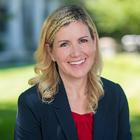
Sarah Irvine Belson Professor SOE | General Academics & Research
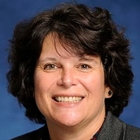
Carolyn Parker Hurst Senior Professorial Lecturer and Director, Graduate Teacher Education and Academic Programs SOE | General Academics & Research

Antonio Ellis Senior Professorial Lecturer and Director of the Institute on Education Equity and Justice SOE | Online Partner Programs (OLP)
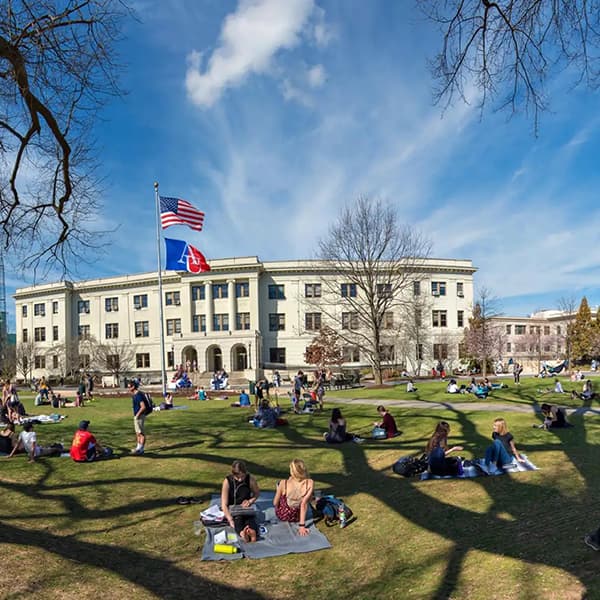
Connect with Us
Speak to an Enrollment Advisor
Email: SOEAdmissions@american.edu | Call: 202-885-3720
Book an appointment online.
Online Events
Schedule a School Tour
Our online students, as well as prospective students, are always welcome to tour our campus.
Email: SOEAdmissions@american.edu
FAQ
While MAT applicants* must hold a bachelor's degree, they are not required to have a specific prior degree or experience in an educational field or otherwise. We value a wide range of backgrounds in our students. If our social mission resonates with you, we encourage you to apply.
*Secondary education students must have a bachelor's degree in the area or closely related to their area of licensure.
If you begin the program in a summer semester, you may complete the degree in 15 months, with the majority of students completing their degree in two years.
Students will be eligible for licensure when they complete their MAT degree program and apply to the state/DC for the appropriate credential, and successfully pass certification exams.
American University’s MAT degree program finds a firm foundation in the democratic ideals that our institution holds dear. With that foundation in mind, the program is grounded in four principles, which influence everything from course design to encouraging collaborations with the projects and organizations with which we partner. Those principles are equity, community, diversity, and excellence.
Students enrolled in the Master of Arts in Teaching can expect an emphasis on cultural competency and diverse perspectives, an interesting and progressive curriculum, a focus on cultivating community among students (no matter where they might be based), and faculty members who are leaders in their fields.
Hands-on experience is a crucial element in American University’s Master of Arts in Teaching program.
In the MAT program, you will obtain over 600 hours of hands-on classroom experience. We will work closely with you to ensure that you are paired with a high-quality teacher near you, even if you are not in the Washington, DC area.
You will observe the teacher with whom you are paired, and under the teacher’s supervision, you will gradually begin to plan and teach lessons, eventually “taking over” the classroom during the second half of the field experience. The field experience spans two semesters: practicum and student teaching. Coursework throughout the program, starting from the very first day, is designed to prepare you for your time in the classroom.
To apply for a DC license you must:
- Successfully pass the PRAXIS Core I and II. Please have your scores sent to American University with institution code 5007 and OSSE with code 7076.
- Complete an online Educator Credential Application for a Regular II Teaching License. The user guidebook details the application process.
Your application should include:
- An official copy of your undergraduate transcript. AU does not have the option for digital transcripts, so you must mail this to OSSE. Directions are in the online application.
- A copy of your Praxis scores to be uploaded to the application system.
- An FBI criminal background clearance. Please note that you must obtain a copy of your fingerprints (see OSSE recommendations) to be submitted to the FBI. Current DCPS employees do not need to be fingerprinted. OSSE will have access to your fingerprints once you complete your application.
For more information, visit the Licensure Information page.
We can accommodate a student teaching placement in most places throughout the US. An MOA partnership agreement must be in place with a school district for clinical field placements. Reach out to Field Placement Coordinator Caryn Ash with any questions. If you are a paid employee of a school, please contact Caryn Ash to determine if your paid position may be used as your practicum and/or student teaching.
While you can complete your practicum and/or student teaching in a charter school or private school there, please note that teacher candidates living in the bellow locations do not have existing MOA partnerships in place to allow clinical field placement in these school districts:
-
Chicago
-
New Jersey
-
New York City
Admissions
Explore admissions requirements and apply to an online American University School of Education program.
Tuition & Financial Aid
Learn about tuition costs, financial aid, and scholarships you may be eligible to receive as you pursue your educational and career goals.
Student Experience
Discover how our innovative technology, thoughtfully designed curricula, and meaningful partnerships will prepare you to be the transformative educator you aspire to be.
Frequently Asked Questions
Can I continue to work full-time while completing the program?
Yes! Many students continue to work full-time throughout their Master's program. We offer online or in-person classes to accommodate your busy schedule.
What about scholarships?
29% tuition schoarships are offered to employees or alumni of certain partners. Learn more here.
Among these partnerships are:
- The Association of Independent Schools of Greater Washington
- City Teaching Alliance
- City Year
- local school districts around Washington, DC
- Peace Corps Coverdell Fellows Program
- Teach for America
- US JET Alumni Association
Graduate scholarships are awarded by the School of Education with the priority deadline for scholarships of February 1. Please contact the graduate admissions office for more information on applications and deadlines.
Are graduate assistantships available?
Yes!
Approximately 15 graduate assistantships are available in areas such as undergraduate education and advising, student involvement and organizations, leadership and community engagement, and the Dean of Students office. Some assistantships offer hourly pay and a few select positions offer full tuition remission.
What are the learning outomes for graduates?
Learning Outcome (LO) 1: Demonstrate ethical self-awareness and a commitment to equity and justice in their professional practice.
Critically reflect on identity, values, and ethics, applying socially just principles to decision-making and professionalism in higher education and student affairs.
LO2: Apply historical, philosophical, and theoretical frameworks to address contemporary issues in higher education.
Synthesize key ideas from the history of higher education and the values of higher education and student affairs as a field, using them to reimagine practices and policies.
LO3: Design and evaluate higher education and student affairs programs, policies, and interventions using research, assessment, and data.
Utilize inclusive research methods and ethical assessment tools to analyze institutional practices and recommend improvements that advance student outcomes and equity.
LO4: Design inclusive learning environments that support holistic student development and success.
Apply student development theories and advising strategies to support the personal, academic, and identity-based needs of diverse student populations.
LO5: Apply legal, policy, and governance knowledge to promote institutional integrity and student-centered practices.
Navigate legal issues, governance structures, and policy environments to support compliance, equity, and effectiveness in higher education contexts.
LO6: Lead with integrity and facilitate inclusive organizational change in higher education and students affairs.
Analyze and apply leadership and organizational theories to develop, implement, and assess strategies that build inclusive teams, manage conflict, and promote socially responsible transformation.
What does an intensive 1-year curriculum look like?
Summer
Elective (3 credits)
Elective (3 credits)
Fall
Introduction to Higher Education and Student Affairs (3 credits)
Diversity, Equity, Inclusion, & Justice in Higher Education and Student Affairs (3 credits)
Research Methods in Higher Education and Student Affairs (3 credits)
Contemporary topics in Higher Education and Student Affairs (1 credit)
Internship (3 credit)
Spring
College Student Development Theory (3 credits)
Organization & Administration of Higher Education (3 credits)
Higher Education Policy (3 credits)
Contemporary topics in higher education and student affairs (1 credit)
Capstone (1 credit)
Elective (3 credits)
What does a sample 2-year curriculum look like?
Fall Semester - Year 1
Introduction to Higher Education and Student Affairs (3 credits)
Diversity, Equity, Inclusion, & Justice in Higher Education and Student Affairs (3 credits)
Elective (3 credits)
Spring Semester - Year 1
College Student Development Theory (3 credits)
Organization & Administration of Higher Education (3 credits)
Elective (3 credits)
Fall semester - Year 2
Research Methods in Higher Education and Student Affairs (3 credits)
Contemporary topics in higher education and student affairs (1 credit)
Internship (3 credit)
Spring semester - Year 2
Higher Education Policy (3 credits)
Contemporary topics in higher education and student affairs (1 credit)
Capstone (1 credit)
Elective (3 credits)
Total credits: 33 (23 requirements, 9 electives where 2 must be in HESA)
How many credits must I take to be eligible for financial aid?
To receive financial aid students must take at least a part-time class schedule, which consists of 5 credits in the Fall and Spring semesters, and 2 credits in the Summer semester.
